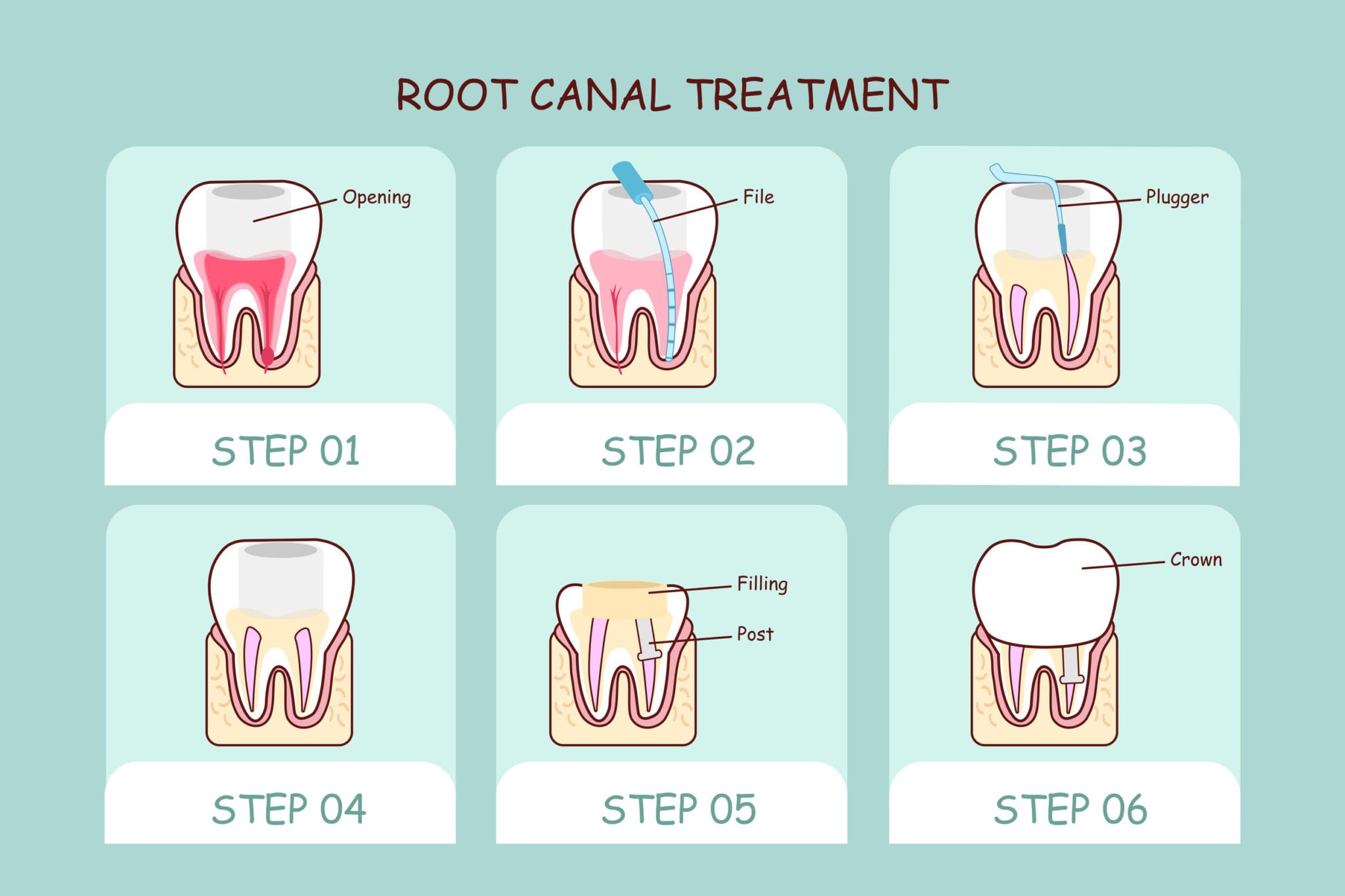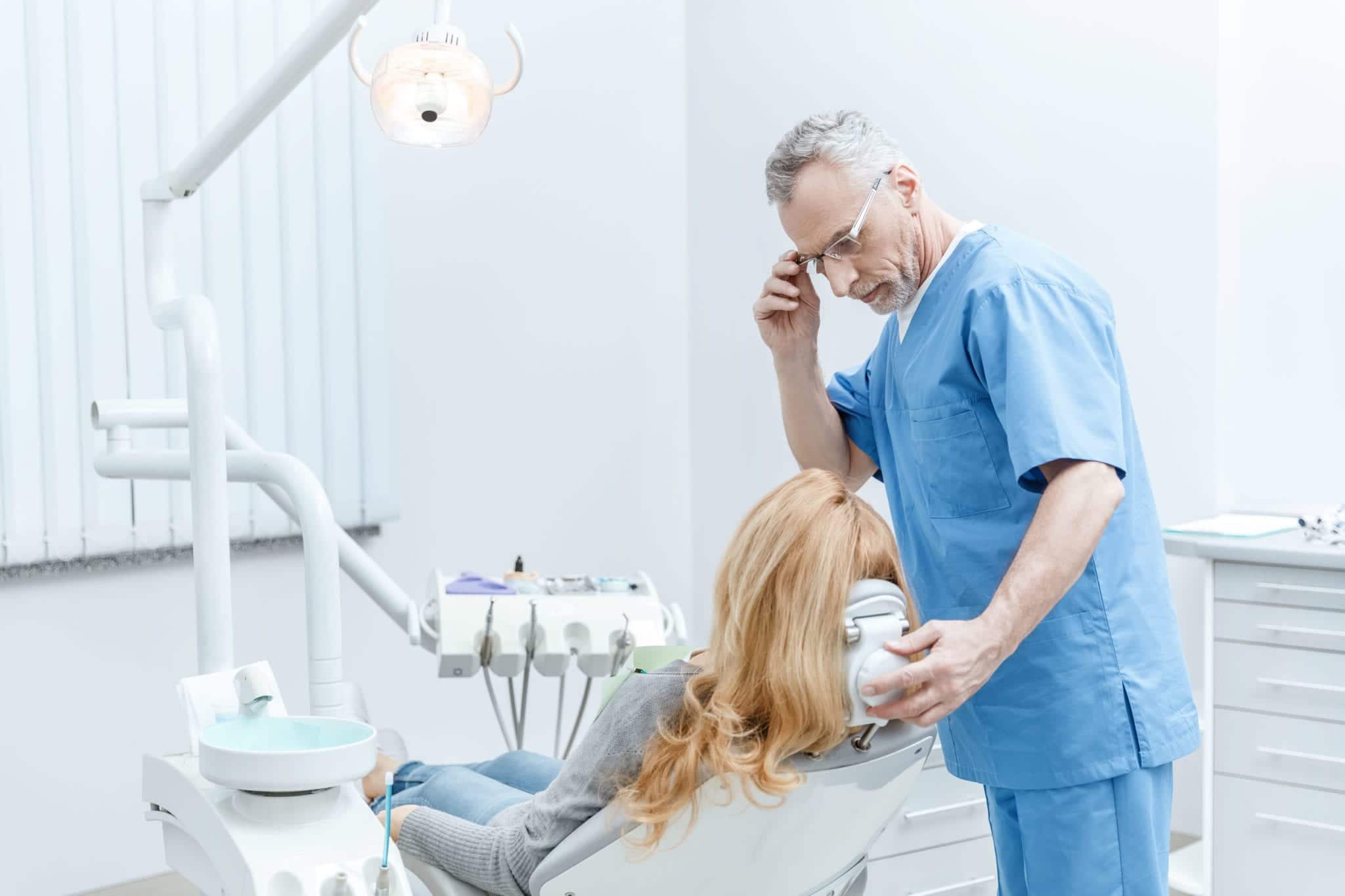
Do root canals really hurt?
This is one of the most frequently asked questions at our dental practice. You’ve probably asked at some point yourself.
So, what’s the answer? Although the procedure often gets a bad rap, the answer can be a bit more complex than you might think.
The short version is that this procedure, more often than not, is no more painful than any other filling. In today’s post, we’re going to cover exactly what you might be feeling if you end up needing to get a root canal.
The Anatomy of a Root Canal
“Root canal” can conjure images of blinding light and a dental drill whirring, headed straight into your viced-open mouth. Unfortunately, this is not an inaccurate depiction.
There is a lot more to it, though. Were you aware that the procedure got its name from the actual area of the tooth being treated? If we asked, could you tell us what (and where) your root canals are?
Let’s look a bit deeper into root canals.
A Root Canal: The Body Part
The root canal is the innermost chamber of a tooth, safely housing the nerve and surrounding pulp tissue of each. When dental treatment is delayed long enough, decay can penetrate both the enamel and dentin and travel to the pulp.
When decay reaches the nerve, it hurts. That pain is usually the final driving force into the dental chair.
A Root Canal: The Procedure
Often, patients experiencing root canal symptoms (like severe pain) forget they were in a lot of pain in the first place, and mistakenly associate symptoms with the procedure that actually relieves them.
Here’s what happens during a root canal procedure:
- Local anesthetic is applied to numb the area getting work (no more pain).
- An opening is created on the tooth’s surface to access and remove damaged tissue.
- The empty canal is cleaned and shaped.
- The root canal is filled with a rubber-like substance and re-sealed on top.
- A temporary filling goes over the seal while the tooth heals.
- Once healed, a permanent filling or crown completes the tooth’s restoration.
Upon full restoration, you should not feel any additional pain in the treated tooth. So then, if it’s the body part – not the procedure – that hurts, what’s happening when it still hurts afterward?
When Your Root Canal Still Hurts after the Procedure
While the procedure itself rarely contributes to the physical pain often associated with a root canal, many patients do experience post-treatment pain. Some are temporary causes that don’t last beyond a few days. Others may be due to failed root canal and can require additional treatment.
Inflammation
A root canal is surgery which has affected a number of ligaments and tissues surrounding the tooth. The nerve endings in inflamed gums can register discomfort. This is a natural part of healing, and typically disappears when the swelling dissipates.
High Temporary Filling
Sometimes when the temporary filling is laid over the canal’s seal, it isn’t filed down quite enough. Even the slightest difference in height between the filling and surrounding tooth will register as discomfort. Biting down can result in a shock of pain or simply cause general soreness.
Problems with the Materials
The materials used to treat root canals are meant to last a lifetime. However, about 15 percent of the time, we see endodontic treatments like this one fail. Sometimes it’s because the sealing material breaks down and/or the restoration begins to leak.
Issues with the Tooth
When a patient doesn’t improve or maintain good oral hygiene, decay may return to the affected tooth, causing further damage. Curvatures in the canal can also prevent complete clearing.

If you are experiencing initial symptoms of needing a root canal, or continue to feel pain beyond a week after root canal treatment, talk to your South Florida dentist about reviewing your case and permanently eliminating your tooth pain.






